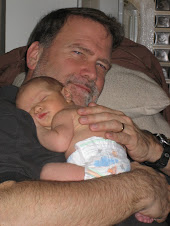Born into a family long on ambition and supplied with the money and power to fulfill it, Edward Kennedy might have been just another rich socialite had not his oldest brother died as a pilot in World War 2. Joseph Kennedy's untimely death meant the plans of his own father, Joseph, Sr., to make him the first Irish Catholic President had to be transferred to his second son, John. And when Senator John Kennedy became President Kennedy, and his younger brother Bobby became Attorney General, there was the matter of an open Senate seat in Massachusetts. Enter Edward "Ted" Kennedy, barely old enough to hold the office, as a candidate in the 1962 special election to fill the seat. Thus began a long, illustrious, and checkered political career that only ended in death. He was the second longest currently serving Senator, but his own actions ultimately kept him from the prize he had hoped to claim--the Presidency.
As a politician, he had few equals, acquiring power over time that made him a formidable enemy as well as a desirable ally. He led the campaign that stopped the nomination of Robert Bork to the U.S. Supreme Court and forever changed the confirmation process--many say for the worse. His 1964 immigration bill changed the way in which people were admitted to the U.S. It opened the door to a flood of people from poorer lands who prior to this did not qualify for entry, something that was both eminently compassionate and enormously aided his own political party. He moved his party ever leftward, arguing for federal power to be increased in education, economics, and most obviously, health care.
His personal problems never stayed personal, but he often managed to escape their normal consequences. The infamous drowning death of Mary Jo Kopechne, a young worker for his late brother Bobby's presidential campaign, stands as the prime example. He had taken her from a party after drinking heavily, drove off the road and into the water, left her to die, and went home, not calling the police until later the next day. That would have sent most offenders to jail. Instead, he was allowed to plead guilty to a misdemeanor and continue as a senator and later as a candidate for President. Many believe that he lost the nomination to President Carter not because of his previous bad behavior, but because he ran such a poor campaign--making the most memorable of his speeches only after he had lost the contest at the Convention in 1980.
He experienced the tremendous pain of the violent death of three brothers, the failure of his first marriage, and various tragedies involving his children, nieces, and nephews. He became the father figure for the children of his slain brothers.
He was a very effective politician--of that there is no doubt. Many speaking from personal acquaintance are writing about his personal kindnesses, his friendliness, his love for his wife, and other good qualities.
But I cannot help but be sobered by the fact that he has now entered eternity, and all the power and political acumen means nothing. He will give account to the Lord for his deeds--and what will matter most is not whether he won a political battle, but whether his name is in the Lamb's book of life.
Cal Thomas, a strong evangelical newspaper columnist, befriended Sen. Kennedy a number of years ago. I am sure that he has shared the Gospel with him--in fact, I seem to recall reading something about that, but cannot be certain. Many say "rest in peace," but that is hard for me, for such peace is only found by those whose faith rests in Jesus alone. We know such faith is a gift, and Sen. Kennedy may have availed himself of the free offer of the gospel. We do not know. We have little to go by here.
Great men in this world still leave it, and must be ready for the next, as must we all.
Wednesday, August 26, 2009
Subscribe to:
Post Comments (Atom)





No comments:
Post a Comment